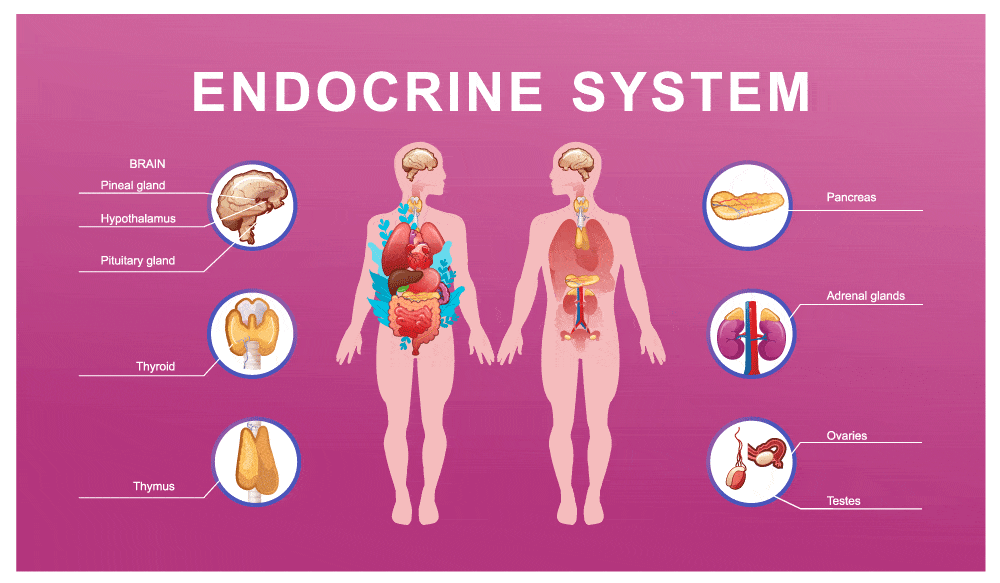The endocrine and metabolic systems form intricate regulatory networks within the human body, orchestrating a myriad of physiological processes essential for maintaining homeostasis and overall health. The endocrine system comprises various glands, such as the pituitary, thyroid, adrenal, pancreas, and gonads, which produce hormones that act as chemical messengers, influencing metabolism, growth and development, reproduction, mood regulation, and many other bodily functions.
Metabolism, on the other hand, encompasses all biochemical reactions occurring within cells to sustain life, including processes involved in energy production, nutrient utilization, and waste elimination. Proper coordination between the endocrine and metabolic systems is crucial for ensuring optimal energy balance, tissue function, and adaptation to internal and external stressors.
Disorders affecting the endocrine and metabolic systems can arise from a multitude of factors, including genetic predispositions, hormonal imbalances, environmental influences, lifestyle factors, and autoimmune responses. These disorders can manifest in various ways, often leading to disruptions in hormone production, metabolism, and organ function, with wide-ranging effects on overall health and well-being.
One prominent group of disorders affecting the endocrine system includes hormonal imbalances, which can result from overproduction, underproduction, or dysregulation of hormones. Conditions such as diabetes mellitus, thyroid disorders (e.g., hypothyroidism, hyperthyroidism), adrenal insufficiency, and polycystic ovary syndrome (PCOS) fall into this category, causing symptoms such as fatigue, weight changes, mood disturbances, irregular menstruation, and metabolic disturbances.
Furthermore, disorders of metabolism can lead to dysfunctions in energy regulation, nutrient metabolism, and waste elimination, resulting in conditions such as obesity, metabolic syndrome, dyslipidemia, and fatty liver disease. These disorders are often associated with lifestyle factors such as poor diet, physical inactivity, and excessive alcohol consumption, as well as genetic predispositions and hormonal imbalances.
Complications arising from endocrine and metabolic disorders can have far-reaching consequences, increasing the risk of cardiovascular diseases, stroke, kidney dysfunction, neurologic complications, reproductive issues, and other systemic complications. Additionally, untreated or poorly managed conditions may contribute to a reduced quality of life, functional impairments, and increased mortality rates.
Diagnosing and managing endocrine and metabolic disorders typically involve a multidisciplinary approach, including thorough medical history assessments, physical examinations, laboratory investigations (e.g., hormone assays, glucose tolerance tests, lipid profiles), imaging studies (e.g., ultrasound, CT scans, MRI), and specialized endocrine function tests (e.g., thyroid function tests, adrenal function tests).
Treatment strategies for endocrine and metabolic disorders aim to restore hormone balance, optimize metabolic function, and mitigate associated complications. Depending on the specific condition, treatments may include medications (e.g., insulin, thyroid hormone replacement therapy, antidiabetic drugs), lifestyle modifications (e.g., diet, exercise, stress management), surgical interventions (e.g., thyroidectomy, bariatric surgery), and supportive therapies (e.g., nutritional counseling, diabetes education programs).
Through ongoing research efforts and advancements in medical science, there is hope for improved understanding, early detection, and targeted therapies for endocrine and metabolic disorders, ultimately leading to better outcomes and enhanced quality of life for individuals affected by these complex conditions. Additionally, education, awareness, and preventive measures play pivotal roles in promoting public health initiatives aimed at reducing the burden of endocrine and metabolic diseases on a global scale.









